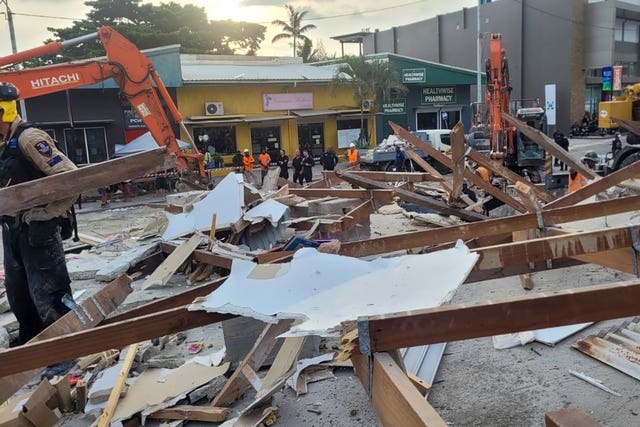Vanuatu held a snap general election on Thursday after Prime Minister Charlot Salwai’s decision to go to the polls two years early rather than risk a no-confidence vote in his divided coalition government.
The election is being held amid the destruction of last month’s powerful 7.3 magnitude earthquake that struck off the coast of the South Pacific island nation on December 17, killing 14 and injuring many more.
Damage was concentrated in the capital Port Vila, where the United Nations said more 1,000 residents were displaced.

Mr Salwai, who is Vanuatu’s fourth prime minister in four years, opted to dissolve parliament in November and call an election rather than risk a no-confidence vote. January 16 was the latest possible election date allowed following the parliament being dissolved.
Following the poll result, negotiations between politicians will take place to decide which parties can agree to form a government.
Vanuatu has a population of 330,000 people who inhabit an archipelago of more than 80 coral and volcanic islands.
Last year, Vanuatu lost its European Union visa-free access because of security concerns over the country’s lucrative trade in selling citizenship to wealthy foreigners. The move has slashed revenue from the scheme. Its debt level had been worsening before the earthquake struck, with China the nation’s biggest creditor.
Riley Duke, a regional analyst at Australia’s Lowy Institute, said the early election was a distraction from the nation’s policy priorities.
“They’re at a very critical juncture in terms of their need to find stable revenue to pull themselves out of their debt situation,” Mr Duke said.
“The frequency of the elections means that the governments are continually forced into a short-term focus and it really means that policy doesn’t stay on the agenda. It’s more about short-term political outcomes,” he added.






